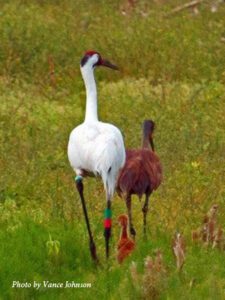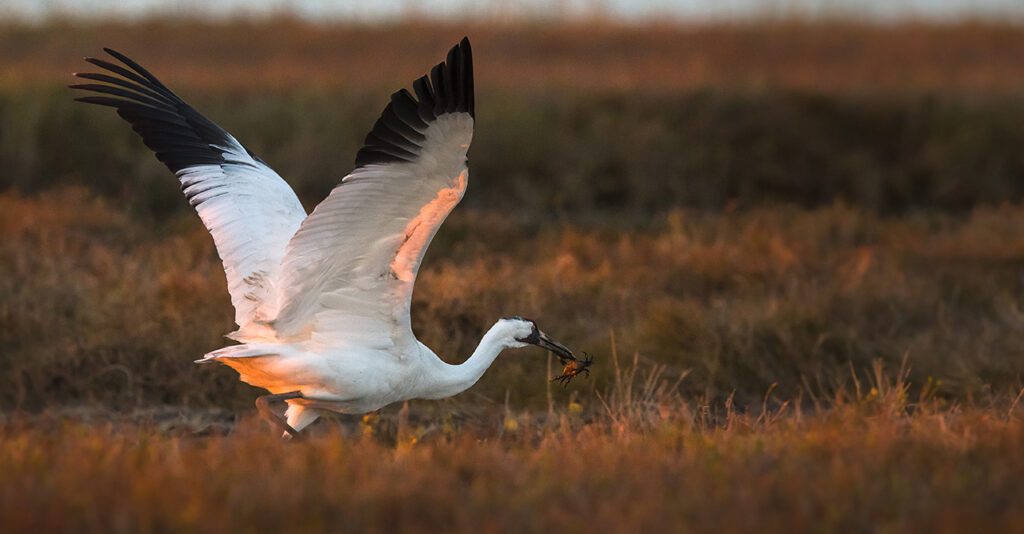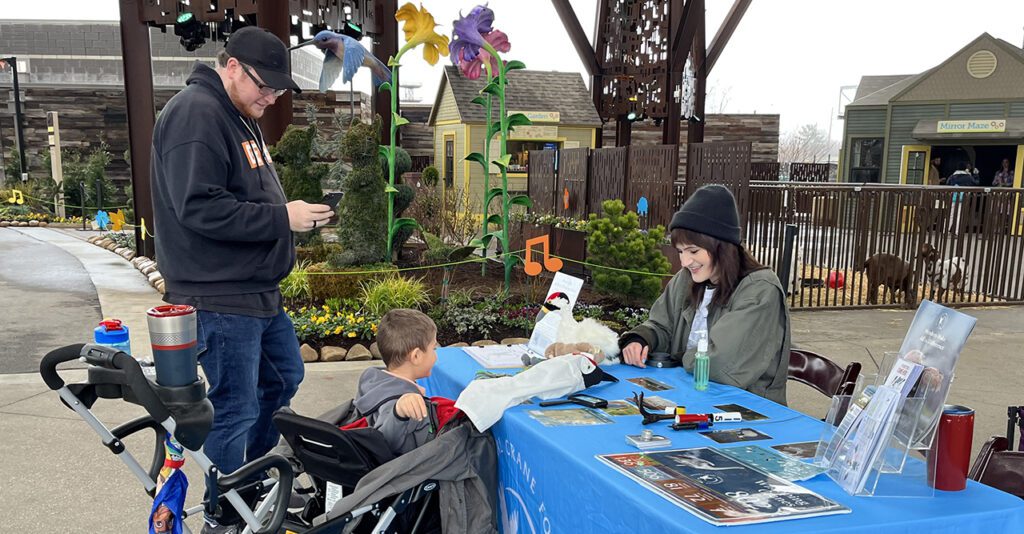Whoopsie, the Whooping-Sandhill Crane Chick
 Your Questions Answered
Your Questions Answered
Crane chicks always cause a bit of a stir, but one in particular is making waves among Wisconsinites near its home in the Horicon National Wildlife Refuge and with Craniacs everywhere. Affectionately named “Whoopsie,” the chick is a possible hybrid of a male Whooping Crane and a female Sandhill Crane. With all the excitement around this unusual mix comes much curiosity. Read on for answers to your most pressing “Whoophill” questions!
Is Whoopsie the first Whoophill?
Hybridization, the pairing of two different species, happens routinely among various species in the wild, but it is still a rare event overall. In the history of cranes in North America, Whooping Cranes and Sandhill Cranes may have hybridized, but it has happened so infrequently that it would be very difficult to discern any effect on the populations as a whole.
Whoopsie’s family is the first documented hybridization case in the Eastern Migratory Population. In a previous reintroduction attempt in North America, Whooping Cranes paired with Sandhill cranes in Gray’s Lake, Idaho. In that case, the Whooping Cranes had imprinted on Sandhills from hatch, as they were raised by Sandhills. Thus, when it came time to pair, the Whooping Cranes only had eyes for gray birds, not white. Our crane partners in Florida report that it may have occurred in the Florida non-migratory population reintroduction as well, but this is not documented.
How – exactly – did this happen?
The Whooping Cranes released in Wisconsin are raised by people in white costumes, with adult Whooping Cranes present. Thus, the interspecies pairing likely occurred at Horicon because there are very few female Whooping Cranes in the area for males to pair with. There is no evidence that the pairing had anything to do with rearing or release methods.
What happens if Whoopsie one day finds a mate?
Based on evidence from captive Whooping Crane/Sandhill Crane hybrids, Whoopsie is likely sterile, but we can’t be certain…yet. There is no pressing need to make an immediate decision on what should be done with the hybrid chick. We have three years until the young bird is mature enough to mate. Until that time there are many obstacles for this young bird to overcome, and we will let that play out.
What’s next for the Whoophill pair?
They are clearly a bonded pair. As of right now, the Whooping Crane Eastern Partnership has no plans of breaking up the parental pair. Perhaps when there are more female Whooping Cranes in the area, the pair will “rearrange” naturally! We will keep you posted.

